Influence, when wielded well, uplifts communities, inspires people and creates lasting change. Oklahoma’s most impactful leaders, whether their areas of influence surround tribal affairs, healthcare, politics, education or business, use their platforms not for personal gain, but for building bridges and expanding opportunities for all.
We profile a few such leaders in our new Oklahoma’s Most Influential People spotlight, a two-part series concluding this month.
By Kimberly Burk and Faith Harl
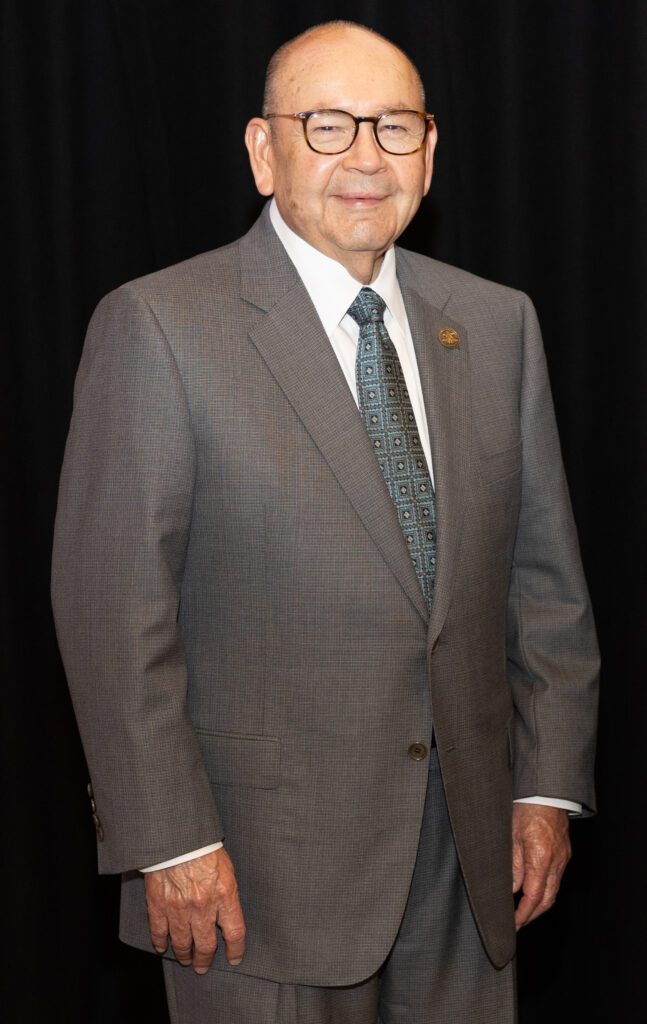
Bill Anoatubby
Governor, the Chickasaw Nation
Leading a nation of 85,000 tribal citizens is a joy for Chickasaw Nation Governor Bill Anoatubby.
“The thing I like most is just being with the people,” says Anoatubby, who was first elected in 1987.
In May, Anoatubby dropped in on an annual training program, where 300 tribal employees were honing their leadership skills.
“I enjoy being with the youth,” he says. “And the senior citizens when they hold events. We have a veterans’ conference. October is our annual meeting and festival, when I give the state of the nation address. I have so much fun, just going and sitting with the people.”
The OKANA Resort, which opened in OKC in February, added 400 jobs to the Chickasaw Nation’s roster of 14,500 employees.
“It was about a $400 million investment, not just in the building itself but in the Oklahoma economy, in the Oklahoma City tourism market,” Anoatubby says.
The Chickasaw Nation launches businesses to create jobs, “and to add revenue that can be utilized by the nation to operate programs, such as healthcare and education and caring for the seniors,” he says. “We have a commitment to our people, to enhance the overall quality of life of the Chickasaw people.”
The investment in education starts with preschool and Head Start, and continues through the post-graduate level.
“We have about 5,700 Chickasaw students receiving scholarships and other assistance,” Anoatuby says. “We spent $32 million last year on grants and scholarships.”
The tribal healthcare system includes a hospital and three clinics, with another hospital soon to be built in Newcastle.
Anoatubby says he is able to manage his myriad priorities with the help of a cabinet system, with departments overseen by people with specific expertise.
“You fill out your whole operation with people who know what they’re doing, and then give them the opportunity to do it,” he says.
His longevity in office means he’s able to enjoy seeing the fruits of the nation’s labor.
“It’s really rewarding to go to events and see the effects of the things the tribe is doing. You see the students graduating and going on to their chosen professions, and the seniors having a good time at their senior sites and when they go on trips.”
Anoatubby believes in partnerships that improve the lives of people in the community as well as tribal citizens.
“We work with counties and cities, with educational institutions. I subscribe to the thinking that a rising tide raises all boats,” he says. “It’s all about relationships and being able to establish them, to work on common goals. That’s how you should be using any power and influence you have, is to work with others and try to make things better.”
– KB
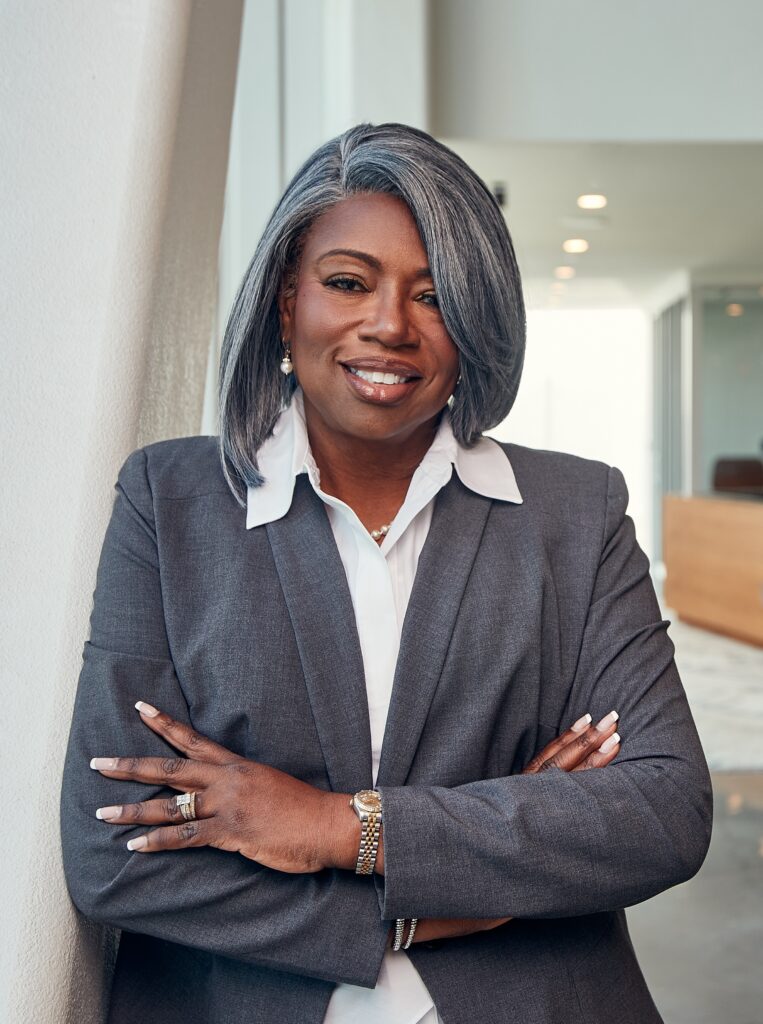
Jamie C. Polk
Superintendent, Oklahoma City Public Schools
Students know the drill when greeting Jamie C. Polk, superintendent of Oklahoma City Public Schools.
“I want them to shake my hand, share their name, look me in the eye, and then tell me what good book they have read,” Polk says.
It’s a good way to promote literacy, and helps her find out what the kids are interested in. Understanding what students have on their minds is crucial to her leadership style.
“I don’t ask students what they want to be when they grow up,” she says. “I ask them what problem they want to solve.”
Students might tell her they want to help the homeless, or create government forms that are easier to fill out.
“It’s usually something close to their hearts, about helping their families,” Polk says.
The school board held community listening sessions in preparation for the district re-setting its goals.
“As the OKCPS Board of Education sets its goals for the next five years, those priorities will be shaped by the values of the families, staff and communities we serve,” Polk says. “We are committed to ensuring that our goals, strategies and communications reflect that direction – focused on results, responsive to our community and rooted in the belief that every student deserves a real chance to succeed.”
Polk leads a district with more than 33,000 students and 4,600 employees.
“It truly is a great responsibility, and an even greater privilege,” she says. “I approach this work with deep gratitude, knowing that every decision we make has the potential to impact a student’s future or uplift an educator’s path. If someone says I have a big job, I say I have a big commitment. I’m committed.”
Meeting often with campus principals is another way to stay focused on students.
“Our principals are what actually drive our daily work,” she says. “We are here to support them.”
The concept of equity figures prominently in the district’s vision for itself.
“For me, educational equity is about ensuring opportunity,” Polk says. “It means making sure every student – no matter their starting point – has access to the support, resources and learning experiences that will help them reach their full potential. This is about focusing on what matters most – ensuring every student has what they need to graduate ready, whether that means enlisting in the military, enrolling in higher education or entering a rewarding career.”
As the strategic plan is revised, Polk will emphasize the reporting of student outcomes.
“I will make the numbers transparent. Sustainable results come from clear goals, aligned actions and honest reflection.”
When public education works, Polk says, “everything around it gets stronger. That’s why I’ll keep fighting for the resources our students need, expanding programs that prepare them for life after graduation, and ensuring we’re growing the next generation of leaders in Oklahoma.”
– KB
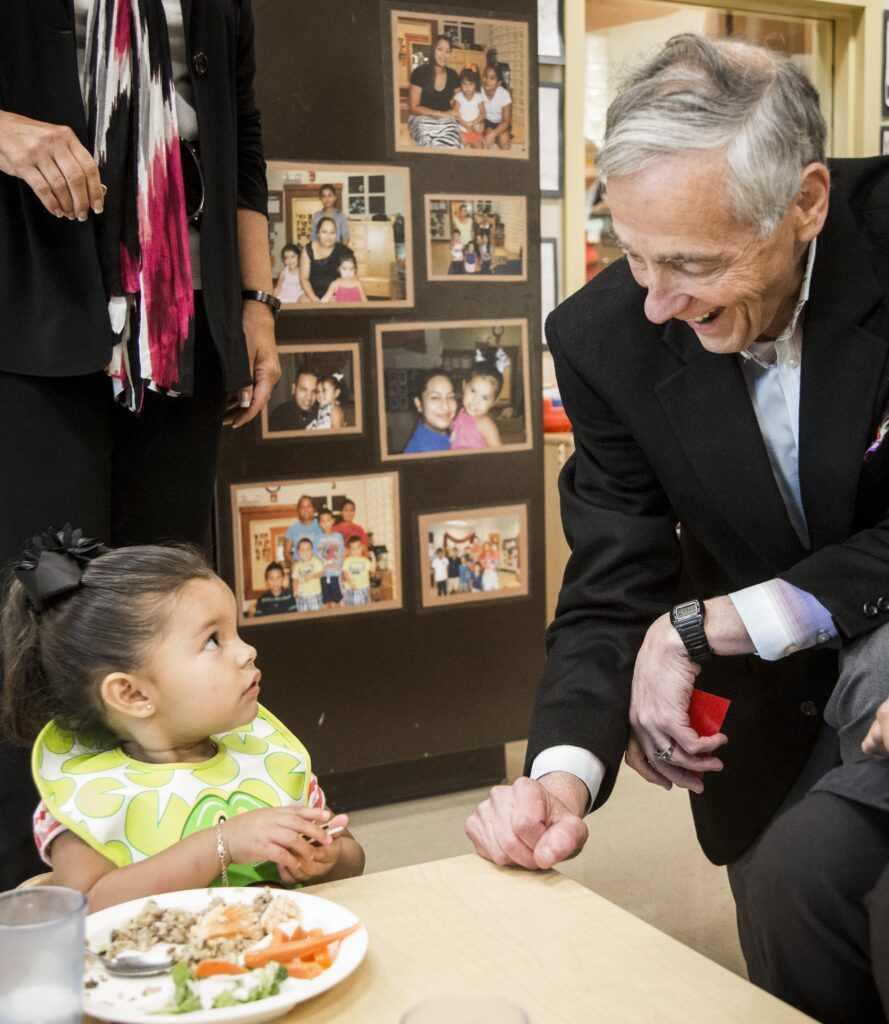
George Kaiser
President/CEO, George Kaiser Family Foundation Board Chairman, BOK Financial Corporation
Businessman and philanthropist George B. Kaiser is on a mission to make the world a more equitable place. As the son of Jewish immigrants, Kaiser is a first-generation American and lifelong Oklahoman.
After earning an M.B.A. from Harvard Graduate School of Business, Kaiser became the president and principal owner of his family’s business, Kaiser-Francis Oil Co. In 1990, Kaiser purchased the Bank of Oklahoma – a decision that made him one of the wealthiest people in America.
As of 2025, Kaiser’s net worth is valued at $15 billion. He serves as Chairman of the Board of BOK Financial and Bank Of Oklahoma and controls 59% of the bank’s shares.
To combat generational poverty, Kaiser formed the George Kaiser Family Foundation, which funds community projects and early childhood development programs. Kaiser also played an instrumental role in forming the Tulsa Community Foundation. Following the lead of other billionaires, Kaiser has signed the Giving Pledge, promising to give away at least half of his assets to charitable causes.
– FH
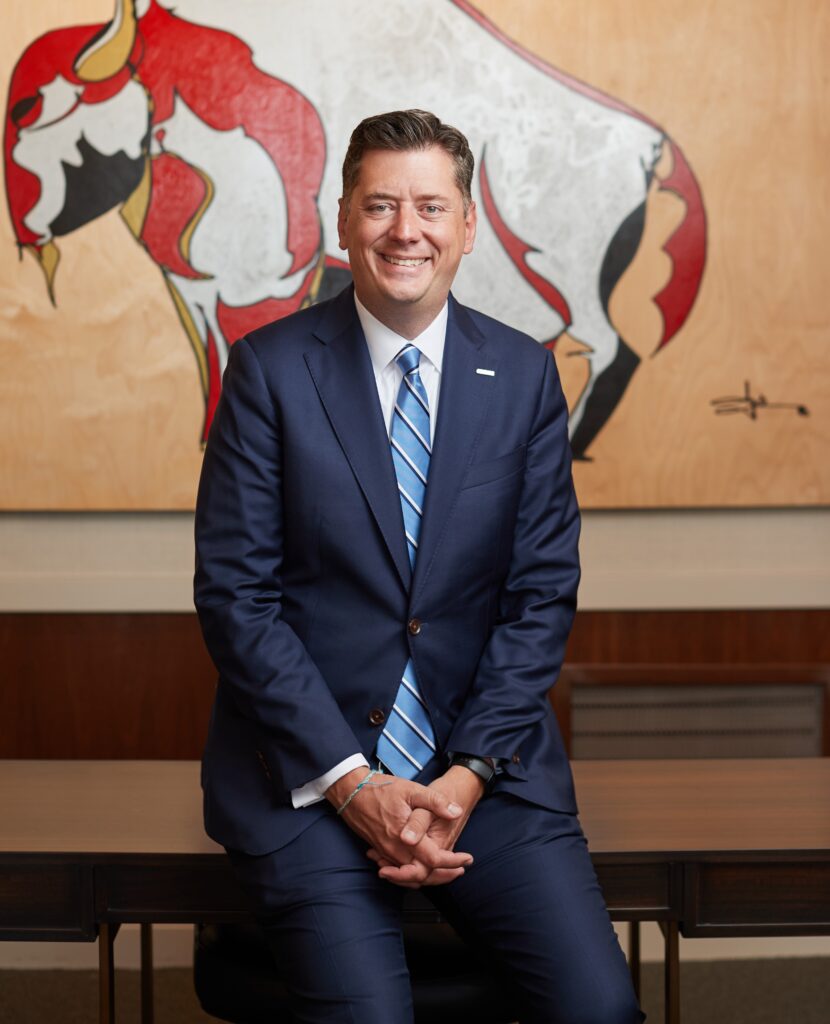
David Holt
Mayor, City of Oklahoma City
As the 38th mayor of Oklahoma City, David Holt is making an impact that is not only felt at the state-level, but across the nation. Holt is the city’s first Native American mayor and, at the time of his election in 2018, was the youngest elected mayor of a major U.S. city. Holt’s commitment to bipartisan policies is what has captured the support of both Republicans and Democrats alike. During his first term, Holt ushered in the most ambitious plan of MAPS 4, which provides funding for 16 public projects totaling $1.1 billion.
Holt also worked to secure the Oklahoma City Thunder as the city’s NBA team for the next 30 years – an accomplishment that aided in Oklahoma winning its first-ever national professional title in June via the Thunder. In return, Holt proposed a plan to build a $900 million sports arena, which was approved by 71% of voters.
For his influence in politics, Holt has earned dozens of recognitions. Among these includes a spot on the Times Next 100 List. He’s also been elected to the Board of Directors of the National League of Cities and serves as President of the United States Conference of Mayors.
– FH
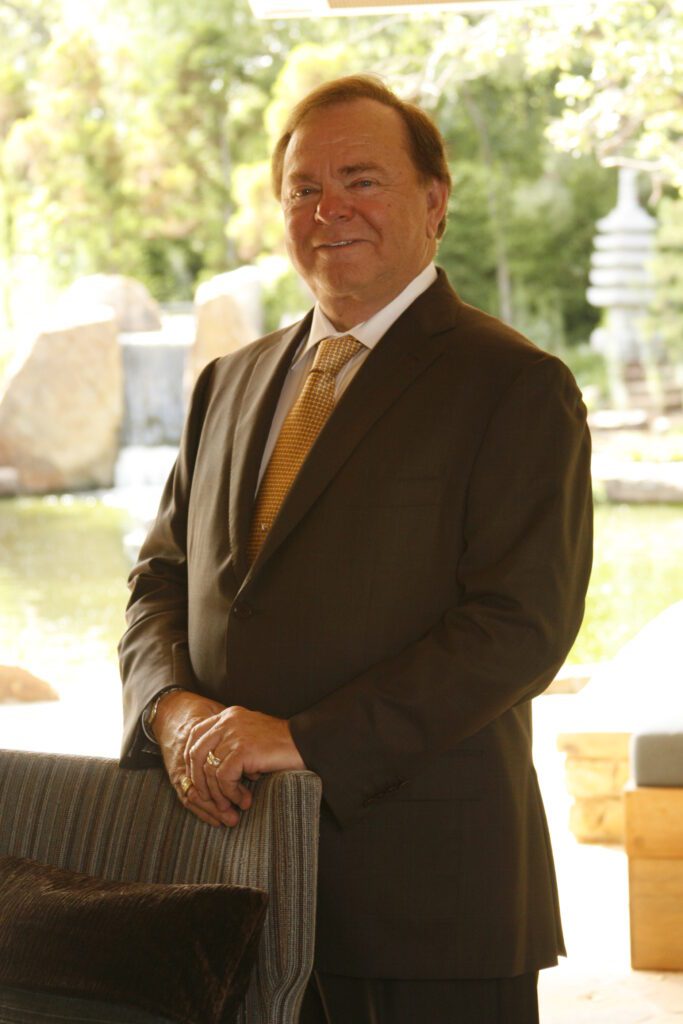
Harold Hamm
Founder and Chairman, Continental Resources
Continental Resources founder and chairman Harold Hamm recognized early on that people who share make the world a better place.
His father, a tenant farmer and lay minister, “was most recognized for his generosity,” Hamm says. “We never had anything extra because my father always found someone who was worse off than we were.”
Hamm moved to Enid at age 16, where he took note of the philanthropy of such oil and gas industry leaders as Frank and Jane Phillips. Starting out in oilfield services, Hamm worked his way up, and by the 1990s had the vision to use horizontal drilling and hydraulic fracturing in North Dakota, transforming the oil industry.
Following the example of his early mentors, Hamm has given to such causes as diabetes research and higher education. In 2016, he was an Horatio Alger Award recipient. In 2012, Time magazine named him among the 100 most influential people in the world. He was inducted into the Oklahoma Hall of Fame in 2011.
– KB
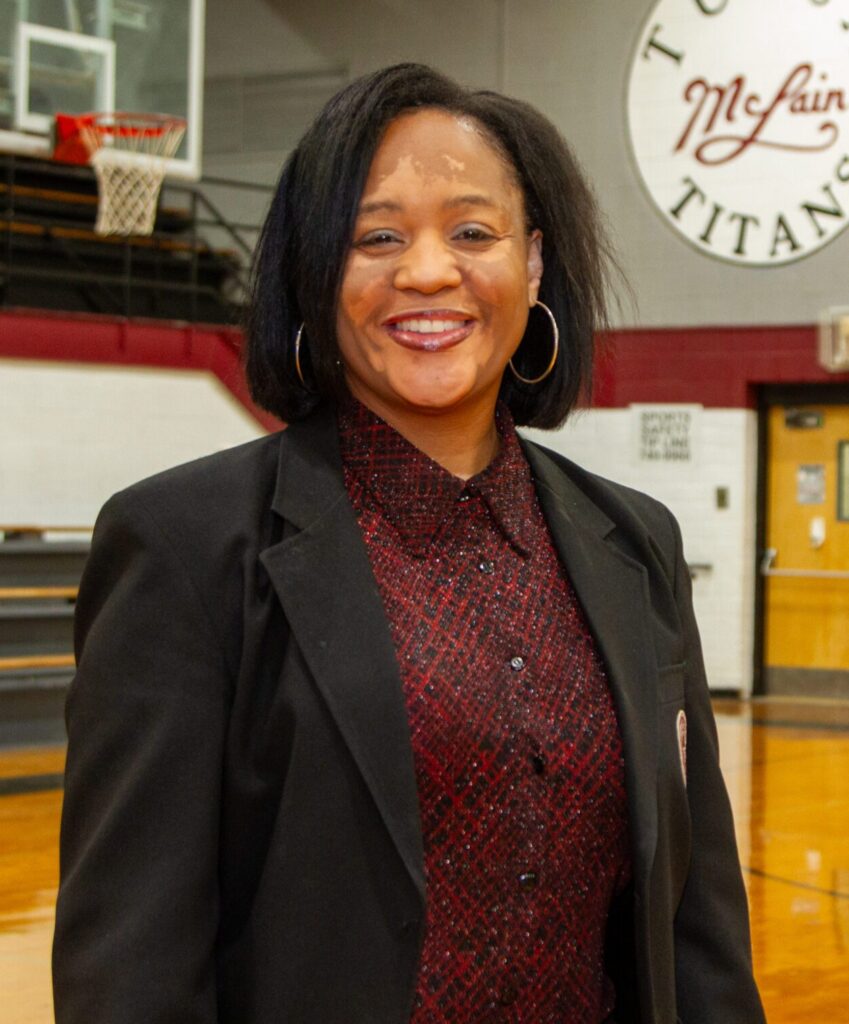
Ebony Johnson
Superintendent, Tulsa Public Schools
As a former student at Tulsa Public Schools, Ebony Johnson is passionate about helping others attain academic success. Johnson held multiple leadership roles at TPS for over 20 years before becoming the Superintendent in 2023. Johnson is the first Black woman to secure the position.
Johnson started her educational career teaching at Monroe Middle School in 1999. She then went on to serve as Executive Director of Student and Family Support Services and Chief Academic Officer at TPS.
With the goal of giving back to her community, Johnson implemented strategies that reduced out-of-school suspensions by 27% district-wide. Paramount to Johnson’s success is her commitment to supporting students’ emotional and social wellbeings.
Since becoming the Superintendent, TPS has seen improvements in student attendance and enrollment. For her transformational work, Johnson has received numerous accolades, including the Hall of Honor award from 100 Black Men of Tulsa in 2014; the Madam President award from the League of Women Voters of Tulsa in 2022; and the e NSU Centurion Award in 2022.
– FH
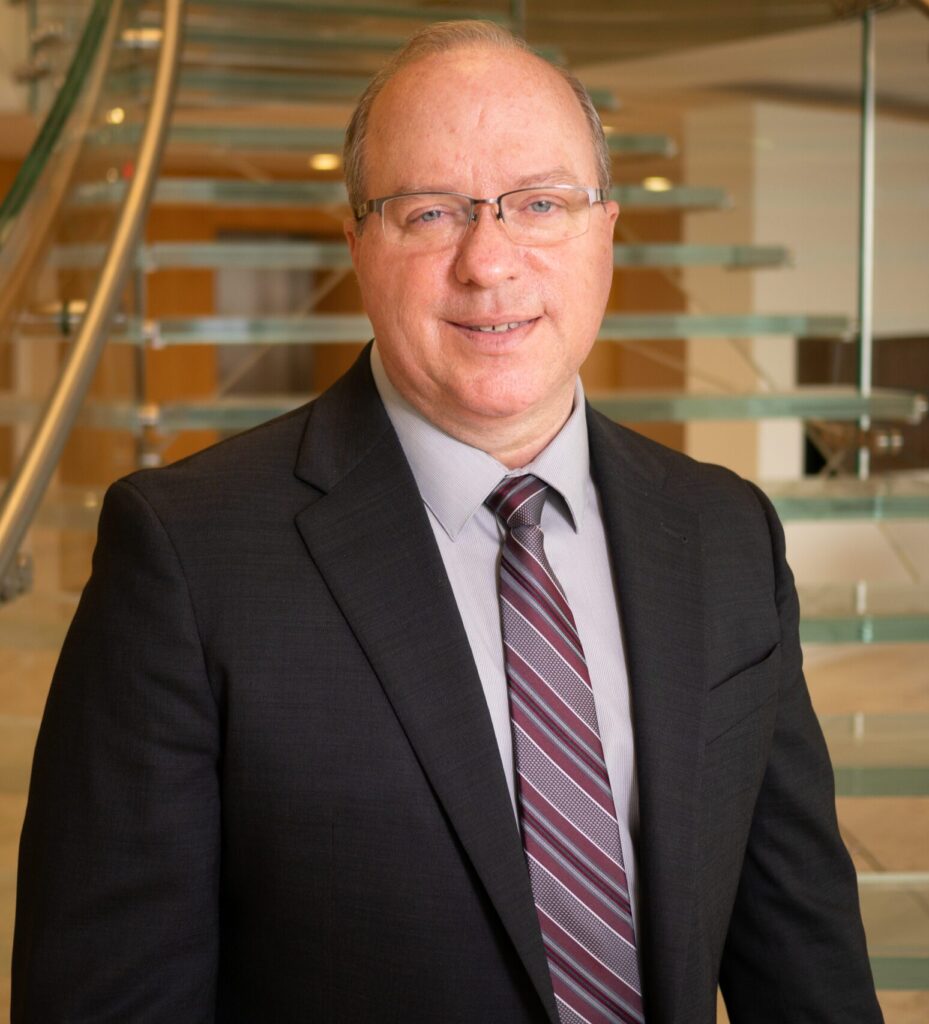
Keith Reed
Commissioner of Health, Oklahoma State Department of Health
Keith Reed was appointed the Commissioner of Health for the Oklahoma State Department of Health in 2021. Upon stepping into his role, Reed was faced with leading the agency through the transitional phase of the COVID-19 pandemic.
Under his leadership, the OSDH partnered with the private sector to help over 2.5 million Oklahomans get vaccinated and distribute protective equipment to frontline workers. Reed continues to drive transformation across the agency, focusing on opportunities for efficiency and innovation.
Prior to becoming the Commissioner of Health, Reed held several leadership roles at the OSDH. A lifelong Oklahoman, he draws on his personal experience to understand state residents and their unique health needs.
Reed also serves as a Colonel in the Oklahoma Air National Guard and Commander of the 137th Special Operations Medical Group at the Will Rogers Air National Guard Base in Oklahoma City. He’s supported major military operations, including Operation Enduring Freedom and Operation Iraqi Freedom.
– FH






















